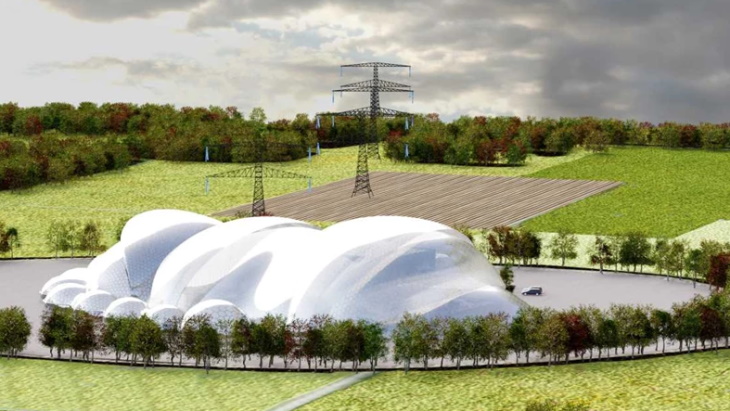SMRs to help decarbonise Dutch energy system, study concludes
Monday, 18 November 2024
Small modular reactors could play an important role and contribute to the Dutch energy transition, a joint report by NRG-Pallas and TNO concludes. The study shows that there is room for more than 13 SMRs in 2050.
(Image: NRG-Pallas / TNO)
The study, the partners said, utilises "NRG-Pallas' expertise in innovative reactor technologies and TNO's energy system model OPERA".
Two scenarios drawn up by TNO were used in this study: ADAPT and TRANSFORM. These scenarios are based on different visions of the future for the Dutch energy system. In both visions, the aim is to reduce greenhouse gas emissions by 55% by 2030 and to achieve greenhouse gas neutrality by 2050.
In order to investigate the sensitivity of the results with respect to boundary conditions and assumptions, a few 'what-if' analyses were performed. These what-if analyses examined whether investment in and use of SMRs change when input parameters are varied.
"The results show that SMRs have a role to play in the Dutch energy transition," the study says. "The optimal contribution of SMRs to 2050 was calculated for various assumptions about future society. The results show that two to more than 13 SMRs (of 150 MWe) can be deployed with room for further expansion of this number in 2050."
It adds: "These results are contingent on policy objectives, expected market availability and realisation periods. If constraints on the potential deployment capacity are partially lifted, as is done in some of the what-if analyses, it is observed that there may even be room for more than 27 SMRs (of 150 MWe). This what-if analysis result can be interpreted as a more economically optimal solution, but is obviously conditional on the aforementioned aspects used to define the potential limits for the scenarios being sufficiently adjusted to allow for this to occur.
"On the other hand, with delayed introduction of SMRs or no nuclear at all, a carbon neutral energy system in 2050 is possible as well. The exact optimum depends mainly on the future of industry, and more specifically on the future heat demand from activities such as refineries and (bio-)aromatics production, and the degree of electrification in society. Nevertheless, it can be concluded that SMRs are an important option for decarbonisation of the industry by supplying process heat."
An earlier scenario study by TNO showed that in an energy system without new nuclear power plants, the system costs are 1% to 2.5% higher than with nuclear energy. "Although nuclear power plants are initially more expensive than wind turbines and solar panels, the loss of nuclear energy as an energy supply should be compensated for by greater use of more expensive flexibility options, such as energy storage," NRG-Pallas noted.
In April 2023, in its draft Climate Fund for 2024, the Dutch government budgeted funds totalling EUR320 million (USD352 million) for the development of nuclear energy. The funds will be used for the preparation of the operational extension of the existing Borssele nuclear power plant, the construction of two new large reactors, the development of small modular reactors and for nuclear skills development in the Netherlands.
In August 2022, the UK's Rolls-Royce SMR signed an exclusive agreement with ULC-Energy to collaborate on the deployment of Rolls-Royce SMR power plants in the Netherlands. ULC-Energy - established in 2021 and based in Amsterdam - aims to accelerate decarbonisation in the Netherlands by developing nuclear energy projects that efficiently integrate with residential and industrial energy networks in the country.
SMRs to help decarbonise Dutch energy system, study concludes - World Nuclear News
